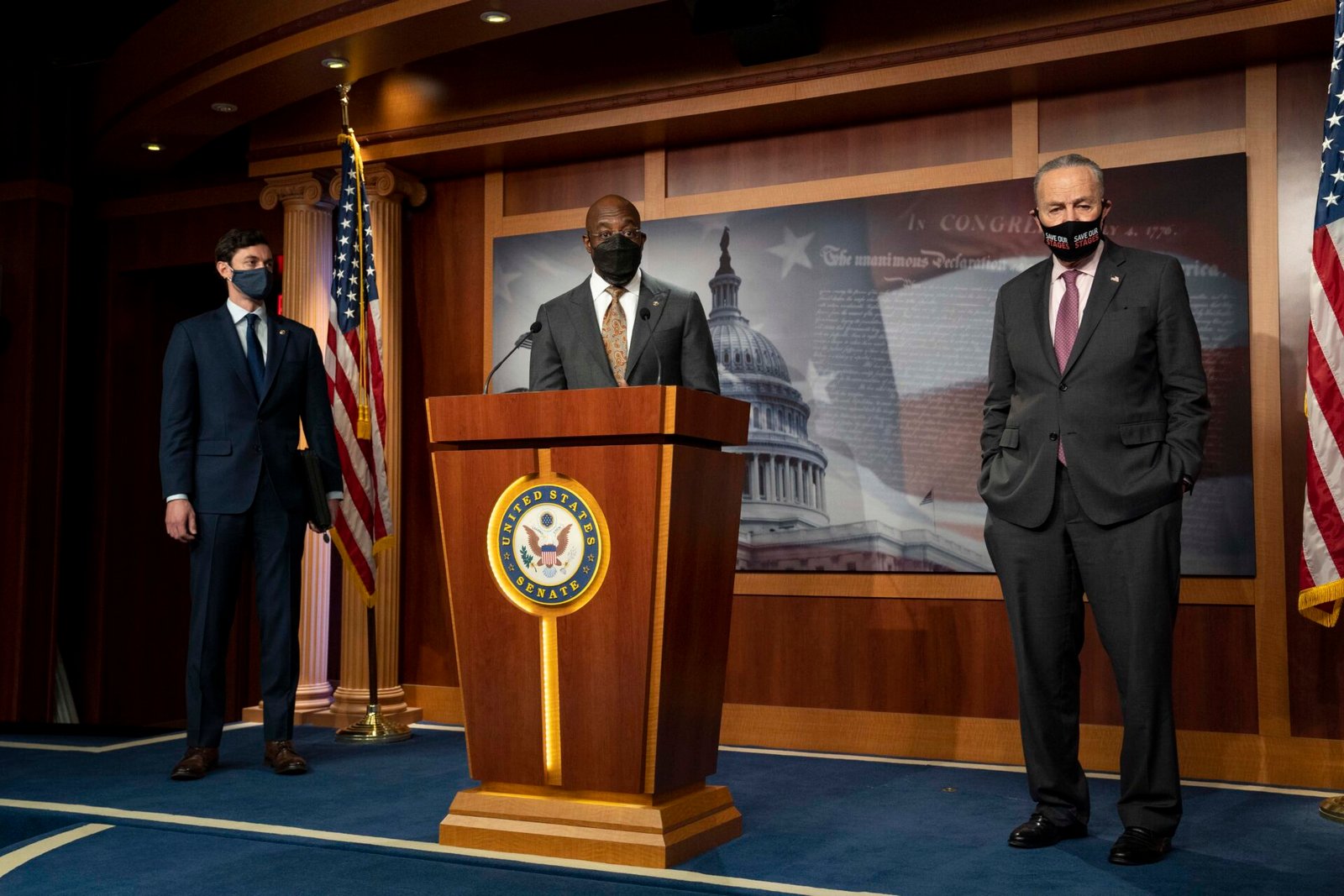U.S. Senate Majority Leader Chuck Schumer embarked on an unprecedented journey to China, emphasizing that Washington’s intentions did not revolve around decoupling from the Asian giant but instead sought equitable treatment for American companies operating within its borders. Schumer, alongside a bipartisan congressional delegation, set the tone for their mission, aimed at advancing U.S. economic and national security interests in the dynamic Asian region.
Addressing the delegation’s objectives, Schumer asserted that the United States was not in pursuit of conflict but rather aimed to establish a level playing field as they engaged in economic competition. This perspective was articulated during his meeting with Chen Jining, the Shanghai Communist Party Secretary, where Schumer voiced the desire for reciprocity. He underscored the importance of allowing American businesses to operate freely in China, mirroring the access enjoyed by Chinese companies in the United States.
Schumer’s journey to China was part of a broader Asian tour, which also encompassed stops in South Korea and Japan. This diplomatic initiative, undertaken by a diverse group of lawmakers, was not an isolated event but followed in the footsteps of several high-profile visits by members of the Biden administration. Among these dignitaries was Commerce Secretary Gina Raimondo, who visited China in August, contributing to the ongoing dialogue between the two nations.
One of the driving forces behind Schumer’s mission was the concern expressed by American constituents regarding perceived unfair treatment of U.S. companies in China. The call for reciprocity was amplified as Schumer stressed the importance of creating a regulatory environment that allowed American businesses to thrive in China, mirroring the opportunities Chinese companies had in the United States.
This endeavor was not a spontaneous action but followed a series of legislative steps taken by Schumer and other Democratic committee leaders. In the previous year, they had passed a comprehensive bill aimed at bolstering competition with China, particularly in the realm of semiconductors and advanced technology. Building on this momentum, they had announced their intention to draft legislation that would control the export of technology to China, deter any potential conflicts over Taiwan, and strengthen rules to curtail U.S. capital investments in Chinese enterprises.
Schumer’s group, which comprised six senators co-led by Republican Mike Crapo, had an ambitious agenda during their Asian tour. Their itinerary included meetings with government officials and business leaders in each of the three countries they were visiting. Additionally, they intended to engage with U.S. companies operating in the region, seeking to gain insights into the challenges and opportunities they encountered in their China-related endeavors.
The delegation was a bipartisan effort, showcasing a commitment to addressing the complex issues surrounding U.S.-China relations. Alongside Schumer and Crapo, other senators on the mission included Republicans Bill Cassidy and John Kennedy, as well as Democrats Maggie Hassan and Jon Ossoff. Their collective presence in China signaled a united front in the pursuit of American interests in the region.
The journey began with the group’s arrival at Shanghai’s Pudong Airport, underscoring the importance of their mission on Chinese soil. Upon landing, Schumer and his fellow senators were met with anticipation and curiosity, as their visit promised to be a pivotal moment in the ongoing dialogue between the United States and China.
Chen Jining, the Shanghai Communist Party Secretary, extended a warm welcome to the delegation and highlighted the significance of the bilateral relationship between the two nations. He emphasized that these ties constituted the most crucial diplomatic connection in the world and underscored the need for cooperation between the United States and China.
The backdrop to this diplomatic mission was a backdrop of heightened tensions and competing interests. The Biden administration had recently imposed restrictions on the export of semiconductors and other advanced technologies to China, citing concerns about potential military advancements and human rights abuses. China had retaliated by accusing the United States of economic coercion, further complicating the relationship between the two superpowers.
Gina Raimondo, who had previously visited China in her capacity as Commerce Secretary, conveyed the concerns expressed by U.S. companies regarding the challenging business environment in China. She noted that many American businesses viewed China as increasingly “uninvestable” due to a combination of fines, raids, and other actions that made doing business in the country a risky proposition. Raimondo highlighted the growing impatience among U.S. businesses and called for decisive action to address these issues.
In summary, Schumer’s journey to China was a pivotal moment in U.S.-China relations, demonstrating a commitment to advancing American interests while promoting cooperation and reciprocity. The delegation’s multifaceted approach aimed to address concerns surrounding unfair treatment of American companies in China and navigate the complex challenges that defined this critical bilateral relationship.
Reda More:
